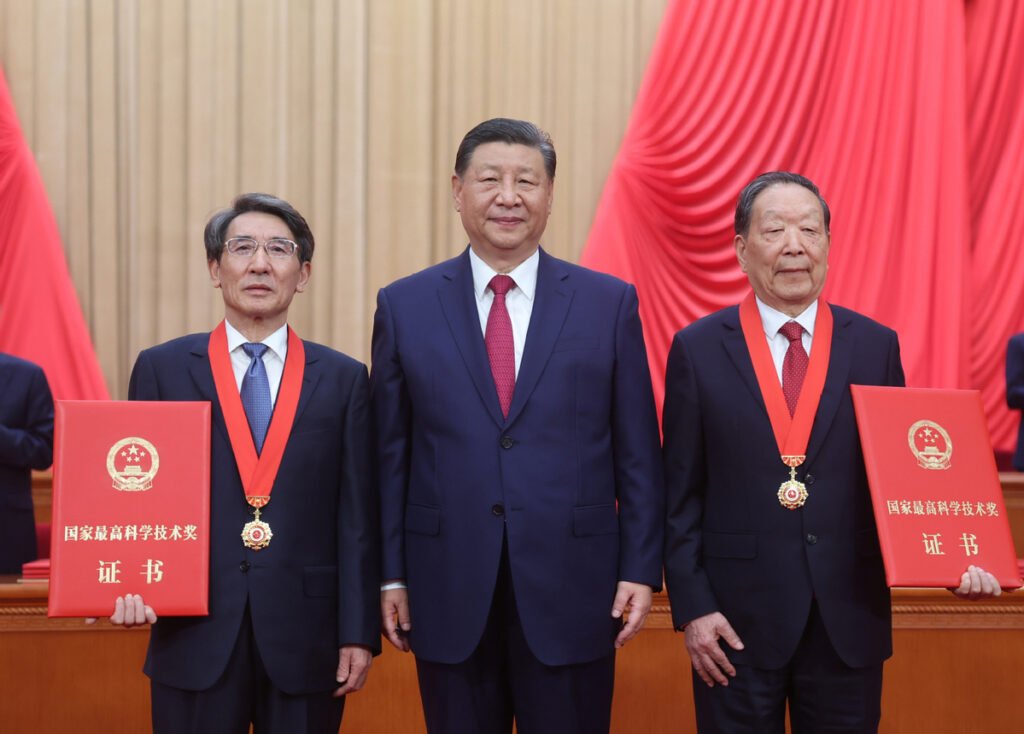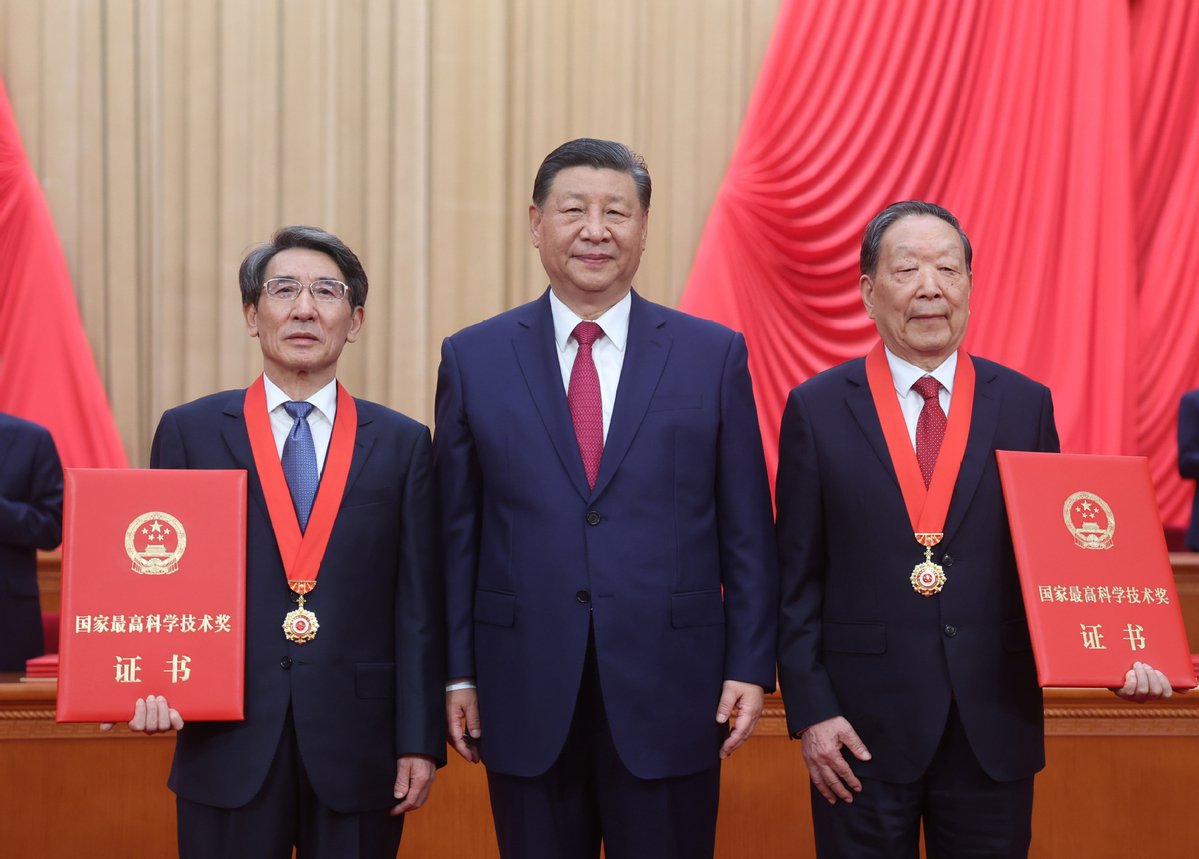On June 24, 2024, President Xi Jinping, also the general secretary of the Communist Party of China Central Committee and chairman of the Central Military Commission, awarded China’s top science and technology medals and certificates for 2023 to Li Deren, an academician of both the Chinese Academy of Sciences (CAS) and the Chinese Academy of Engineering (CAE) from Wuhan University, and Xue Qikun, an academician of CAS from Tsinghua University, at the Great Hall of the People in Beijing.

In a significant speech addressing academicians, researchers, and senior officials, Xi outlined a bold vision to transform China into a leading nation in science and technology by 2035. He emphasized the importance of bolstering the nation’s self-reliance while enhancing openness and global cooperation.
Xi highlighted the urgency of innovation to “seize the commanding heights in sci-tech competition and future development.” His speech was delivered at a comprehensive meeting that included the national science and technology conference, the national science and technology award conference, and the general assemblies of the Chinese Academy of Sciences and the Chinese Academy of Engineering.
“A nation thrives when its science and technology thrive, and a robust science and technology sector is the cornerstone of a strong nation,” Xi stated in his 45-minute speech. He stressed that Chinese modernization and high-quality development hinge on advancements in science and technology.
Reflecting on China’s achievements in sci-tech development since the 18th National Congress of the CPC in November 2012, Xi proposed leveraging these experiences to further progress. He called for optimizing the market’s role in allocating sci-tech resources while enhancing government functions and boosting enthusiasm across industry, academia, and research.
Xi emphasized the integration of technological and industrial innovation to foster new productive forces, focusing on key areas and weak links in building a modern industrial system. He highlighted the need for emerging and future industries and the use of new technologies to upgrade traditional industries.
Prioritizing the training of exceptional engineers, master craftsmen, and highly skilled individuals, Xi also called for enhancing the training of young scientific and technological talent.
He underscored China’s commitment to building a community with a shared future for mankind, achieving self-reliance in the sci-tech sector through open cooperation. “The more intricate the global landscape grows, the more crucial it becomes for us to embrace openness and inclusivity,” Xi said, advocating for open cooperation to drive self-reliance and advancement.
Looking ahead, Xi indicated that China will expand channels for exchanges and cooperation at both official and people-to-people levels, leveraging platforms like the Belt and Road Initiative, and supporting joint research by scientists worldwide.
Xi reaffirmed China’s pledge to integrate into the global innovation network, participate in global scientific governance, address global challenges collaboratively, and use science and technology for the benefit of humanity. He urged academicians to lead in science and technology, tackle significant tasks, mentor young talents, and exemplify the scientific spirit.
International scientists invited to the event were impressed by Xi’s vision. Abbas Firoozabadi of Rice University noted that Xi’s involvement underscored China’s leadership emphasis on science and technology. Soroosh Sorooshian from the University of California, Irvine, praised Xi’s focus on international cooperation, highlighting its necessity for addressing global challenges. Dale Sanders, a fellow of the Royal Society in the UK, commended Xi’s commitment to global collaboration and self-reliance in science and technology, observing that China’s openness has driven prosperity for both China and the world.

